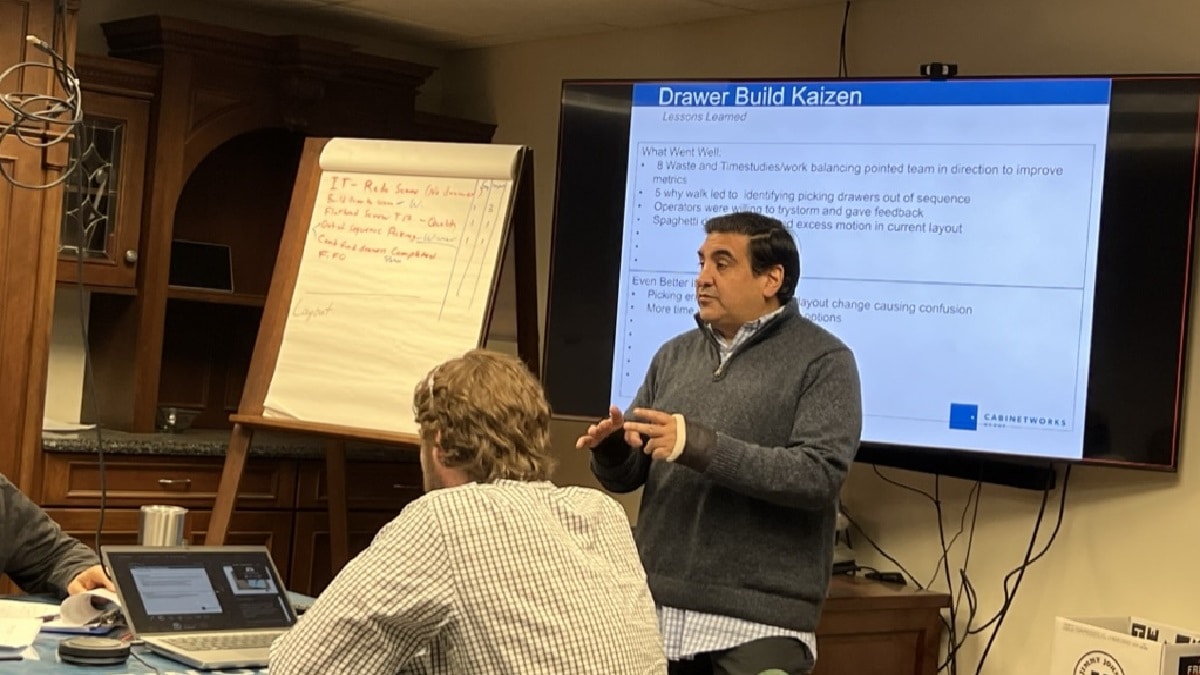With a staggering 90% of startups failing, accurately assessing market demand and validating business assumptions before launch is imperative for success.
Unfortunately, many founders overlook these essential steps, leading to costly mistakes that derail their entrepreneurial aims. They fall short by neglecting to measure the size of their serviceable market or delaying the validation process. According to SaaS expert Patrick Parker, entrepreneurs must niche down, get specific, and evaluate their findings to speed-test their business ideas before launch.
With more than a decade of experience, Parker is a seasoned business owner and award-winning product developer. He founded Thoroughbred Solutions and SaaSPartners, dedicated technology partners that allow business owners to focus on operations while providing the solutions needed to scale. In recognition of his achievements, he was invited to join the esteemed Forbes Tech Council.
During his career, Parker has successfully helped several companies scale, such as Fynancial, LEAN, LinkBridge, etc., and now he shares his secrets with founders to help reduce start-up time from concept to launch.
Here are some of his best-selling tips, which have assisted many businesses in rapidly scaling the market.
Niche Down to Scale Up:
When launching successful startups, Parker is a firm believer in niching down. As he puts it: “When you try to serve everyone, you often end up serving no one.” By focusing on a specific market segment and offering tailored solutions, businesses can maximize their chances of success by targeting customers who will benefit most from their products or services.
Parker defines this in simple words “For example, if you were going to launch a new CRM product, you would need to choose a niche because the market for CRM tools is highly saturated with very mature products. However, niching down to be “THE” CRM for fitness professionals is very specific in terms of targeting and building out your brand narrative and messaging,” Parker explained.
Have An Elevator Pitch:
Parker stresses the importance of having an elevator pitch that accurately captures what your business does. Founders need to be able to briefly explain their product or service in 30 seconds or less. For example, if you were to launch a new CRM product, you would need to choose a name and create a tagline explaining exactly what the product did and how it would help solve customers’ problems.
He gives examples of his own startups, SPRNG and Huddle Up. SPRNG is a platform that helps health and wellness professionals scale their businesses through online group training, while Huddle Up helps direct sales leaders mobilize their sales teams. Each has a straightforward and alluring sales pitch that entices the customer to purchase. So, having a good elevator pitch can help you accelerate your go-to-market strategy in a snap.
Conduct Thorough Research:
As some great minds say, “Never go diving without testing the waters” — Parker suggests that founders conduct thorough market research before diving into developing their product or service.
- Stop Making Assumptions:
According to Parker, so many founders assume that because they face a challenge in their market or in how they operate, everyone else must have the same problem. It is important to remember that for every business and product, there is an ideal customer.
- Know Your Competitors:
Keep your friends close and your enemies closer. That’s what Parker advises. Knowing your competitors is critical for any business. With the rapid growth of software and technology, it is essential to know who else is working in the same space as you. Start by looking at the competitive landscape and understanding who is trying to solve similar problems as those your product might be addressing. Analyze their model, pricing, and user experience.
Identify Your Ideal Customers:
Once you understand your competitors better, Parker encourages entrepreneurs to identify their ideal customers and engage with them through interviews, surveys, questionnaires, etc. But how do you know who your ideal customers are?
Parker suggests going as deep as possible when defining your ideal customer profile and buyer’s persona and knowing the difference between these two. An ideal customer profile defines the perfect customers for the problem your product solves. An example of this could be industry, company size, revenue, location, budget, employee headcount, tech stack used, size of their customer base, etc.
A Buyer Persona identifies who the decision makers will utilize your product or benefit from implementing your product within their organization. An example of this could be job titles, time at the company, challenges they face, or KPIs they’re responsible for. Knowing your ideal customers can make a difference in helping to set your product apart from the competition.
Craft An Authentic Story:
Parker emphasizes the need for founders to craft an authentic story that resonates with their target market. He suggests building an effective narrative around the product or service that helps explain why it’s needed in the market. This will help founders better communicate their purpose to their customers and potential investors.
Define Success Metrics:
When it comes to testing, Parker advises that entrepreneurs define goals and select metrics for validation in order to measure success. For example, if you were launching a new CRM product, you would want to measure things like email signups or customer referrals as growth indicators. Getting customer feedback early and running experiments to test different features or pricing strategies are also important in this process.
Patrick Parker’s advice is invaluable for any founder looking to speed-test their business ideas before launch. Taking the time to do market research, identify target customers, and craft an engaging narrative allows founders to ensure they have done everything possible to reduce risk and maximize success.
Ultimately, providing valid proof of concept is essential for building trust with investors and potential customers. So, don’t be afraid to niche down, get specific, and take the time to test your ideas before taking that big leap.
With Parker’s tips and advice, entrepreneurs can ensure they have done all they can to speed-test their business idea before the launch.
For more useful insights, follow Patrick Parker on Instagram or visit SaaS Partners.








